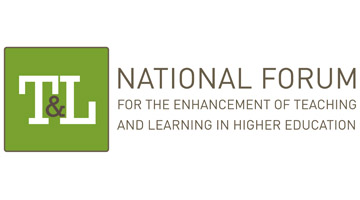Shaping environmental and social responsibility in early education

- Module: ECHCH 4017 Creative Interventions for the Personal, Social and Emotional Development of Children
- Programme: Early Childhood Education and Care Year 4 (Elective)
- Number of students: 14
- TLA Category: Design-based assignment; in-class activity
- Find out more: Dr Margaret O’Donoghue
Shaping environmental and social responsibility in early education
Traditionally, learning about complex global challenges within early childhood education institutions has been limited, with climate action and global citizenship education being introduced for the first time to children of primary school age.
Teachers and educators are now increasingly recognising young children as active citizens, who are capable and interested in environmental and social responsibility. Education for Sustainability (EfS) aims to empower children to engage in pro-environmental behaviour and contribute meaningfully to a healthy society at a level that is appropriate to their age and ability. Climate science data and time-horizons for achieving global goals may not always be effective for engaging young children, however through art, song, and cultural connections, educators can bring sustainability to life.
Working together to support peers with a new sustainability education resource
In Semester 1 of the 2024/2025 academic year, Final-year Early Childhood Education and Care (ECEC) students at TU Dublin were challenged to create a sustainability resource for students in years 1-3 to use during their work placements. Their assignment aligned with a number of elements within the four learning outcomes set out in the Childhood Education and Care module descriptor: ‘Apply imagination and engage in collaborative work through the designing of a creative arts project for young children.’
Working collaboratively, students researched, designed, and developed the resource in class, under the guidance of their lecturer. Their goal was to help young children understand their role in building a more sustainable world and encourage global citizenship. The resource was designed in the format of a booklet, and featured definitions of sustainability, links to the United Nations Sustainable Development Goals (SDGs), and suggested actions which could be undertaken during practice placements. The resource also made references to relevant educational policies like Aistear and the Aistear Siolta Practice Guide.
Speaking of her experience on the project, student Amber McCabe said:
This assignment challenged me to collaborate effectively and engage with complex ideas, such as promoting eco-conscious behaviours, while keeping the focus on accessible and actionable solutions for early years educators.
The finished resource was distributed to students across other year groups as a printed booklet form and was printed in a larger format to be used as a display. The resource is also publicly available as digital resource on the TU Dublin website, allowing students to continue using it throughout their professional careers. Download a copy of the Student Toolkit ECEfS here.
Student Nadine Clarke spoke positively of the challenge, saying:
I enjoyed doing this CA, as we got to work within a group, be creative and share and reflect on placement and our sustainability in Early Childhood Education. At the end, seeing our work presented in a leaflet was very rewarding.
Speaking of the new project, School of Social Sciences Law and Education Lecturer, Margaret O’Donoghue reflected:
This assignment was one of three for the 100% CA module. Initially, the students felt a bit apprehensive, however, they had a solid understanding of the SDGs from a previous year's module. During tutorial sessions, they received support to discuss key content and ensure the inclusion of as many SDGs as possible. The feedback was overwhelmingly positive, with students expressing a great sense of achievement upon seeing the resource in print.
CEO StartBright Early Learning Centres, Elaine Mc Quillan, positively endorsed the resource by saying:
I think this resource is going to be extremely useful in encouraging students on placements to take part in encouraging and leading sustainability practice at their placement service. The booklet has lots of useful information and examples and I like that it can be implemented at any centre without any additional cost to the service or student and is quite achievable.
Impact for the SDGs
- SDG 4: Quality Education
- SDG 13: Climate Action
![]()
![]()
Key Competences to the GreenComp framework
| Competence Area | Competence | Descriptor |
|---|---|---|
| Embodying sustainability values | Valuing sustainability | Reflect on personal values; identify and explain how values vary among people and over time, while critically evaluating how they align with sustainability values. |
| Promoting nature | Acknowledge that humans are part of nature; respect the needs and rights of other species and of nature itself to restore and regenerate healthy and resilient ecosystems. | |
| Envisioning sustainable futures | Exploratory thinking | Adopt a relational way of thinking by exploring and linking different disciplines, using creativity and experimentation with novel ideas or methods. |
| Acting for sustainability | Collective action | Act for change in collaboration with others. |
Find the full table of GreenComp Competences framework here.

